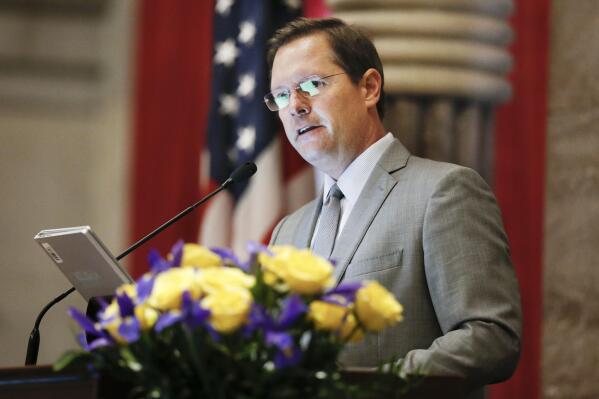Speaker: Nashville US House seat to split in redistricting
NASHVILLE, Tenn. (AP) — Tennessee House Republicans plan to carve fast-growing Nashville into multiple congressional seats, making it potentially easier for the state’s Republican-dominated congressional delegation to flip a previously Democratic-controlled district, House Speaker Cameron Sexton confirmed Monday.
Sexton told The Associated Press the newly drawn map will be unveiled later this week, but he declined to detail just how many splits Nashville-Davidson County will face. The 5th District has long been centered on the state’s capital city and has been a safe Democratic stronghold in a state overwhelmingly controlled by Republicans. It contains all of Davidson and Dickson counties, and part of Cheatham County.
“I won’t give an exact number. but it’s either two or three,” Sexton said of the potential number of district splits Nashville could see.
“I’ve never bought into the approach that having multiple people represent a big city is bad thing,” Sexton said.
Speculation has swirled for months over how burgeoning Davidson County would be redrawn during the Republican-supermajority General Assembly’s once-a-decade task of carving up new legislative and congressional districts. Democratic leaders have pleaded to keep the county seat whole, but they’ve had little sway with the state’s GOP members.
Senate Speaker Randy McNally, a Republican, told AP later Monday that he believes lawmakers must split up the district because of the population changes across the rest of the state.
“I think we have to because of the way the east has to move, all those districts have to move west, and the west has to move east, and that compresses Nashville,” he said.
Currently, Tennessee’s U.S. House delegation includes seven Republicans and just two Democrats, whose districts center on Nashville and Memphis.
The Nashville-area House seat has been held by U.S. House Rep. Jim Cooper since 2003. He’s attended multiple redistricting meetings over the past few months urging Republican lawmakers to keep his Nashville district together. On Monday, he warned the House’s plan could “backfire” on Republicans.
“Gerrymandering Nashville is an insult to all Nashvillians and likely to backfire on the Republican Party,” Cooper said in a statement. “It’s not conservative to split a county that’s been whole for 240 years. The speaker is not splitting his home county, so he can’t be serious when he claims it’s good for Nashville.”
Democratic candidate Odessa Kelly, who was planning on running against Cooper this year, also criticized splitting up the district. Kelly, who is Black, said Nashville has had a white congressman for roughly 200 years and that “it should not be lost on us that the legislature is breaking up the district at a time the city is on the verge of electing the first openly gay Black woman.”
Nationally, Republicans and Democrats are pushing to shore up congressional seats amid the fight over control of the U.S. House — where Republicans need a net gain of just five seats to come up on top.
Meanwhile, Sexton said it’s possible that the map could create a toss-up district in Nashville.
“It depends on the election, how people vote. It could become a marginal district on both sides,” Sexton said. “Elections are crazy. They can swing 10 points, one side or the other.”
Lawmakers are using newly released U.S. Census Bureau data to redraw state and congressional districts currently dominated by Republicans.
The map proposals, shaped around state and federal requirements, will be taken up during this year’s legislative session. House members have already unveiled their new proposed state House map while their plan for the congressional map will be disclosed publicly Wednesday.
The maps must be approved by the House and Senate chambers before they can go before the governor for approval. Republican Gov. Bill Lee has veto power over the finalized plan, but he’s not expected to put up many objections.


